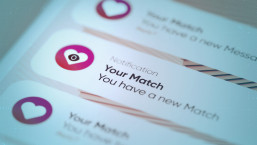Consumers in the UK would be happy to share their DNA if it would help secure their financial and personal information, according to a new report.
A surprising 24% would consider giving their bank their DNA profile, while 42% would share biometrics such as fingerprints – a mere 26% would share their social network profile however.
“For the last six months, we’ve spoken to consumers and banks all over the world, in an effort to understand how our relationship with our smartphone is affecting our relationship with our financial institutions,” Rocky Scopelliti, global industry executive for banking, finance & insurance at Telstra told ComputerWeekly.
“What we uncovered is that, when it comes to mobile banking applications, consumers no longer believe in just the safety of passwords and usernames.”
When asked how happy they are with their main financial institution’s authentication methods overall, only 42 per cent of consumers said they were ‘very satisfied,’ but this did vary by country.
The report also found that consumer attitudes to non-biometric password security were mixed, with half (44 per cent) of consumers having a small number of passwords that they use multiple times across their digital identities, and one in five (18 per cent) using just one common password across all digital accounts.
A quarter of consumers (25 per cent) admitted to physically writing their passwords down, while at the other end of the scale one in ten (12 per cent) used a password manager and one in 20 (5 per cent) used a random password generator.
This variation might go some way to explaining why 32% of consumers have experienced identity theft, according to the research from Telstra.
As We Live Security reported recently, the password is increasingly losing ground to a variety of alternatives, including fingerprints, retinas, and also our brains. A study at Binghamton University found it was possible to identity a sample of volunteers by their ‘Brainprint’ with 94 percent accuracy.



